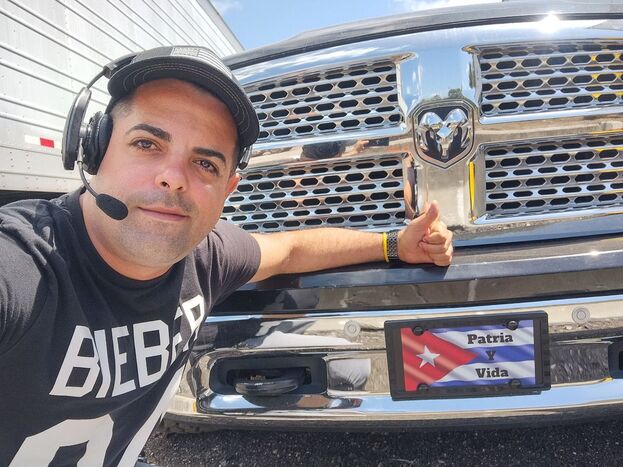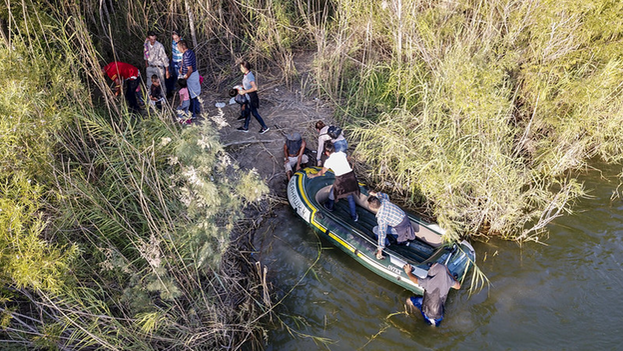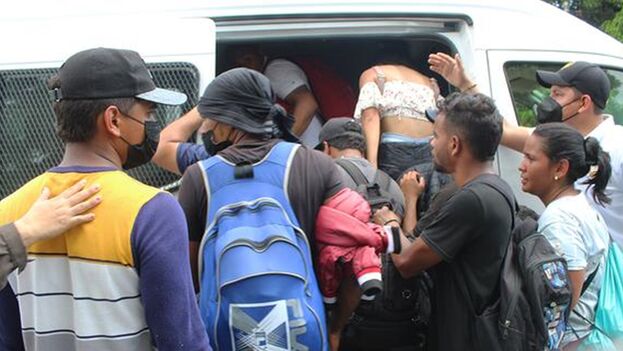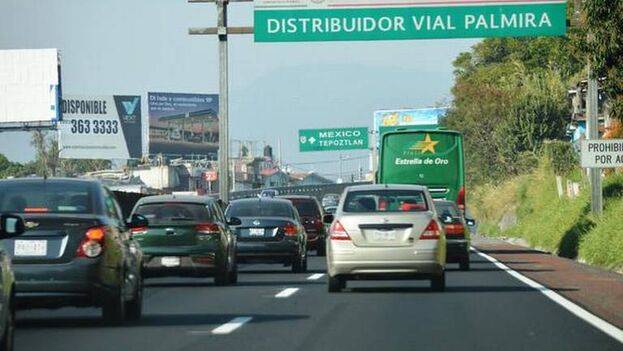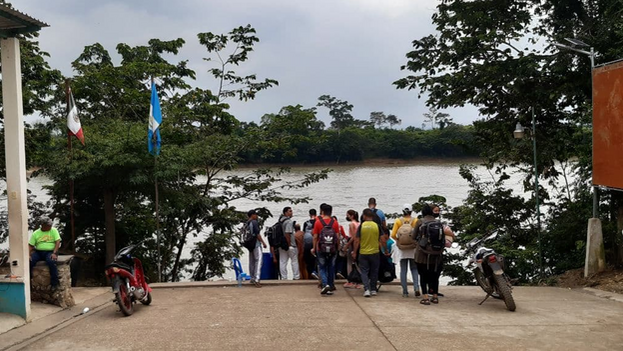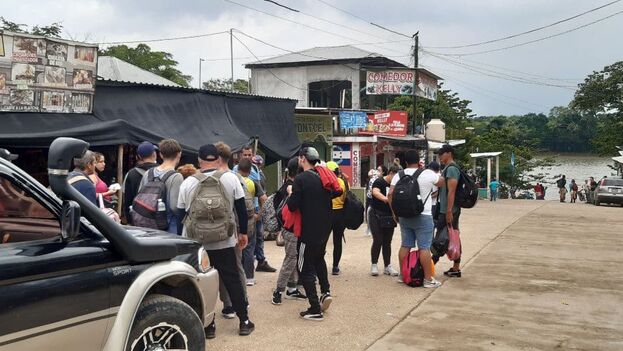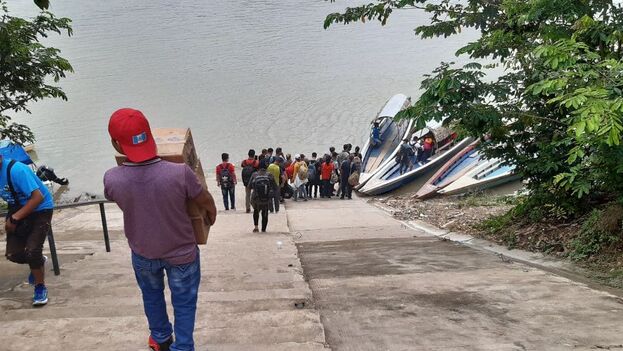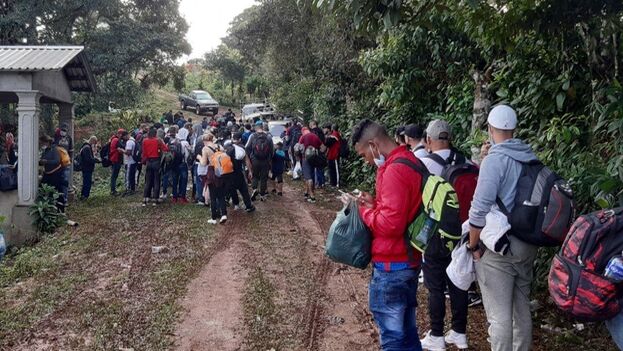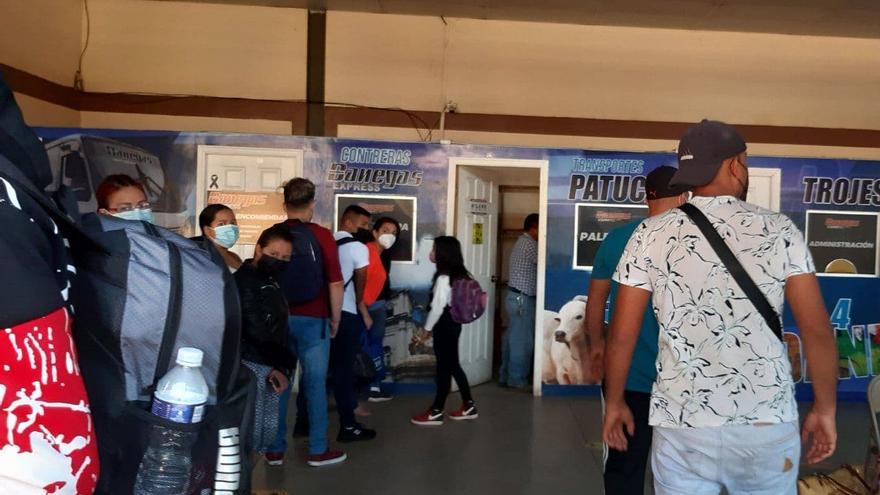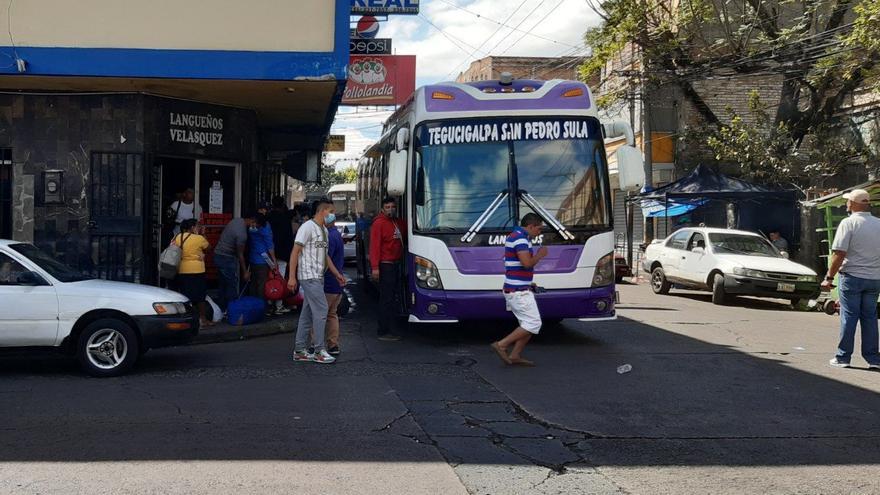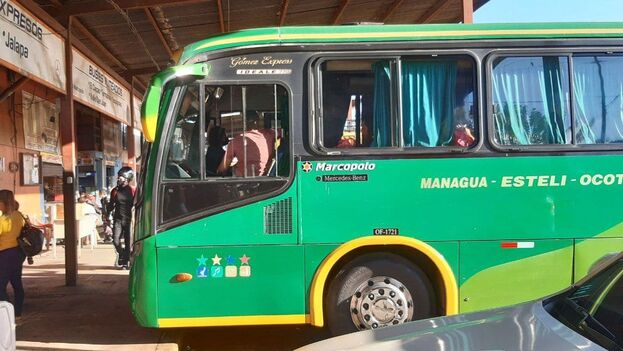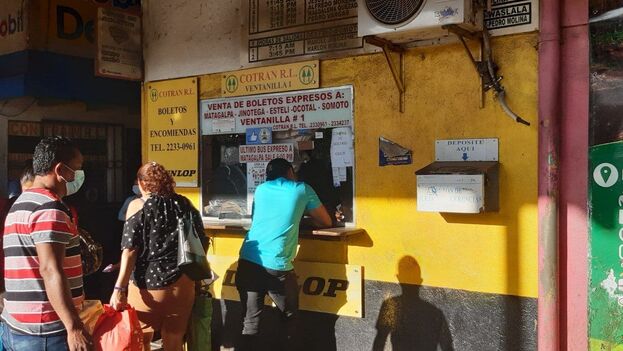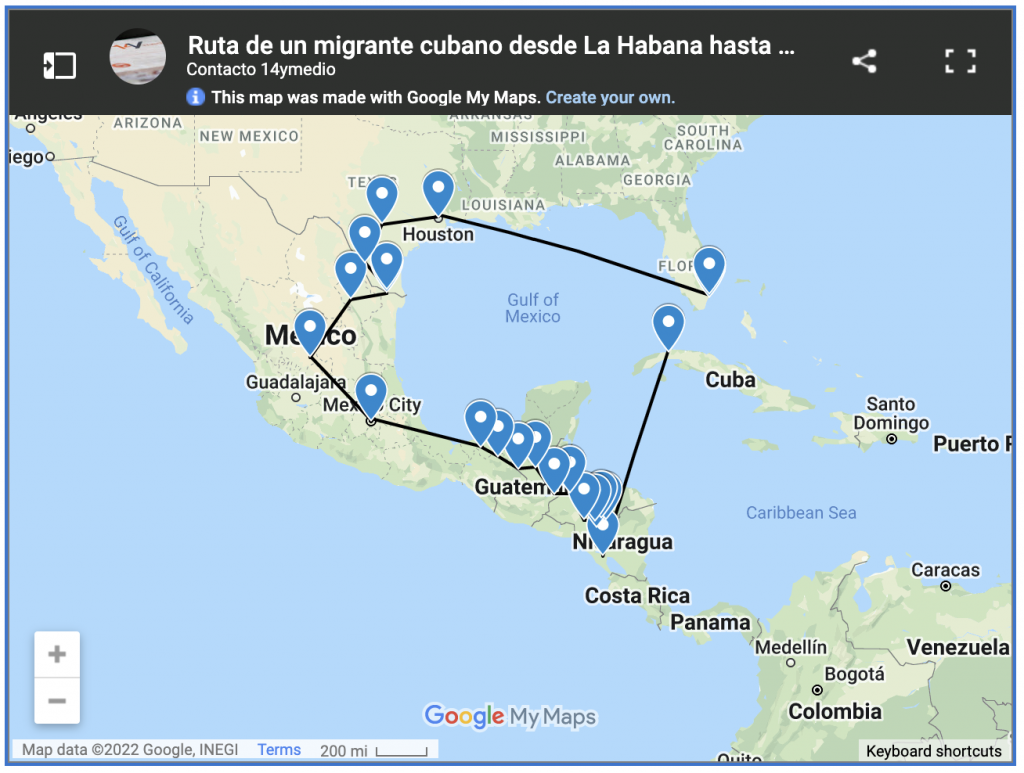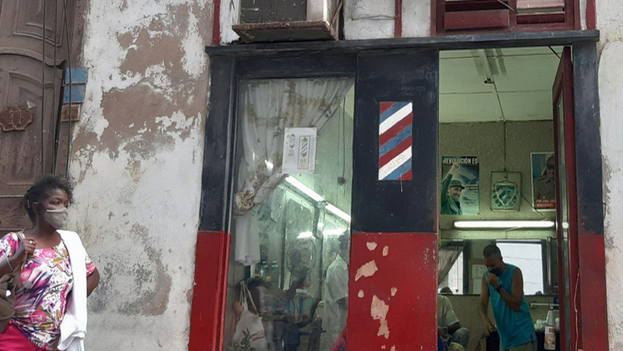
![]() 14ymedio, Alejandro Mena Ortiz, Miami, 30 October 2022 — David left his dream of being a dentist to open a barbershop in Havana in 2016, one of the best years in Cuban’s recent history, with the visit of Barack Obama, tourism reaching the sky and hopes for more lively changes than ever. Six years later, and after a traumatic journey on the “route of the volcanos,” he tells 14ymedio how he had to leave the Island and his prosperous business due to the regime’s persistent refusal to open the domestic market.
14ymedio, Alejandro Mena Ortiz, Miami, 30 October 2022 — David left his dream of being a dentist to open a barbershop in Havana in 2016, one of the best years in Cuban’s recent history, with the visit of Barack Obama, tourism reaching the sky and hopes for more lively changes than ever. Six years later, and after a traumatic journey on the “route of the volcanos,” he tells 14ymedio how he had to leave the Island and his prosperous business due to the regime’s persistent refusal to open the domestic market.
“I started from scratch like everyone, with the basics. The business was growing, and in 2018 you could expand and hire a worker. I was gaining experience and customers, improving, because I had to prepare, and I passed styling courses,” he says from his new residence, in Naples, Florida, where he arrived in March 2022.
Until that moment, and like so many Cuban barbers, David had to resort to the black market to acquire his products. The Government’s resistance to creating wholesale markets for self-employed businesses limited (as it continues to limit) the ability of entrepreneurs to obtain materials to work with and pushed them to immerse themselves in illegality, exposing them to all kinds of fines and inspections.
“The barbers communicated in a WhatsApp group where we helped find work material that in Cuba is very difficult to get; for example, a razor blade had to be bought on the black market, because there are none. They don’t exist. So, how do you justify your work? And that’s a basic material, because for every customer you need a blade,” he explains. At that time, the price was 15 pesos each, and David is convinced that, currently, the price will have climbed vastly, and everything was brought from other countries. continue reading
The only formula authorized by the Government for barbers to buy their work materials was to acquire it, sporadically, in stores in freely convertible currency (MLC), but they were paid in national currency. If things were complicated before the Ordering Task*, with monetary unification and galloping inflation, the situation went from bad to worse.
“To buy from the State, which exchanged 24 pesos for a dollar, I had to lose money, because I had to buy it on the black market [where from the beginning the currency was double the official rate]. In addition, I have to justify it, put everything on paper to declare my taxes. How do you justify something like that, if on the street no one is going to give you a voucher?” David explains that the things he needed to acquire in the informal market were not occasional but basic, from the aforementioned blades to talc or cologne and even cloths to clean the floor — although, “well, we Cubans are always inventing and can clean with an old T-shirt,” he says.
The worst, despite everything, was the price cap that the Government of Havana decreed at the beginning of 2021. The maximum price for a cut was 25 pesos, as the local press said in an article mentioning the fines imposed for violating the regulations. “At the Los Amigos Barbershop, a rented unit on 17th and H, the entrepreneur was fined 8,000 pesos, in line with the provisions of Decree Law 30, for charging 50 pesos for a haircut, when the established price is 25,” the text said.
David remembers that case perfectly. “A week ago a law had passed saying that a cut couldn’t be more than 25 pesos, and the barbers began to protest. They spent three months harassing the barbers, that little boy who works in front of 17th and H complained a lot. His place belongs to the State, but you are the one paying him. I can’t allow someone to tell me how much I have to charge for my service. I can have competition and that forces me to match my price, because if I charge 100 here and someone else charges 80 for the same thing, I will lower it. But not if someone comes and tells me that I have to charge so much for that,” laments the barber.
“I preferred to charge less and take care of myself before they fined me 8,000 pesos and withdrew my license, because [the cost of that] is four minimum wages, so to pay it was a lot of work,” says David, who recalls the failed rebellion of the barbers. “Those who worked in State premises demonstrated, but they didn’t solve anything.”
That combination — the impossibility of buying products to maintain his business legally, the price cap and the risk of being fined — took away his enthusiasm for his work and encouraged him to leave the Island through Nicaragua.
The journey was not easy. David suffered the fear of being discovered by the authorities of the countries he had to cross, and saw a person die a few feet from him at the crossing of the Rio Grande that, at the age of 29, marked him very hard. But leaving was a necessity, especially since on July 11 he saw how many young people were arrested and imprisoned for dozens of years simply for protesting and demanding their rights.
Now, from quiet Naples, Florida, he deals with the American bureaucracy to legalize his situation, but things are getting better. “I had my birthday in March. My family all gathered and took me to a very big fair, where there were gadgets and games. I went to eat a pizza with my cousin and I look back and see a policeman behind me. Of course, I came with the idea that such a guy, in your country, represses you,” he reflects.
He invites Cubans to reflect before following the path he took because he considers emigration to be a very personal decision, as well as risky. He tells them: “Open your eyes, see your own reality and do what you have to do to escape, you won’t regret it. It’s hard, because you lose many things, friendships, family, you lose something that is part of you, but there is nothing more beautiful than living in freedom.”
*Translator’s note: The “Ordering Task” is a collection of measures that include eliminating the Cuban Convertible Peso (CUC), leaving the Cuban peso as the only national currency, raising prices, raising salaries (but not as much as prices), opening stores that take payment only in hard currency which must be in the form of specially issued pre-paid debit cards, and a broad range of other measures targeted to different elements of the Cuban economy.
Translated by Regina Anavy
____________
COLLABORATE WITH OUR WORK: The 14ymedio team is committed to practicing serious journalism that reflects Cuba’s reality in all its depth. Thank you for joining us on this long journey. We invite you to continue supporting us by becoming a member of 14ymedio now. Together we can continue transforming journalism in Cuba.


